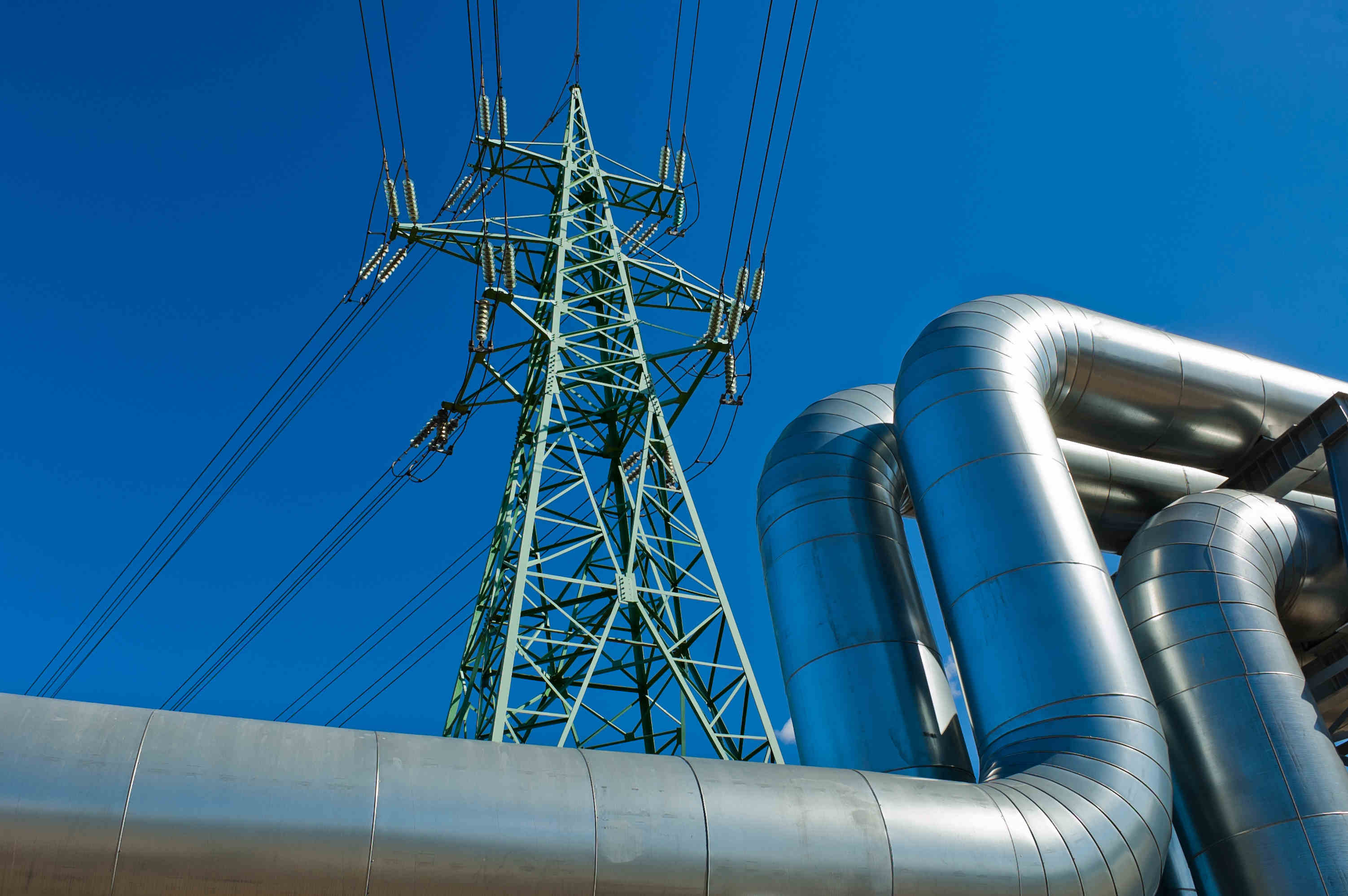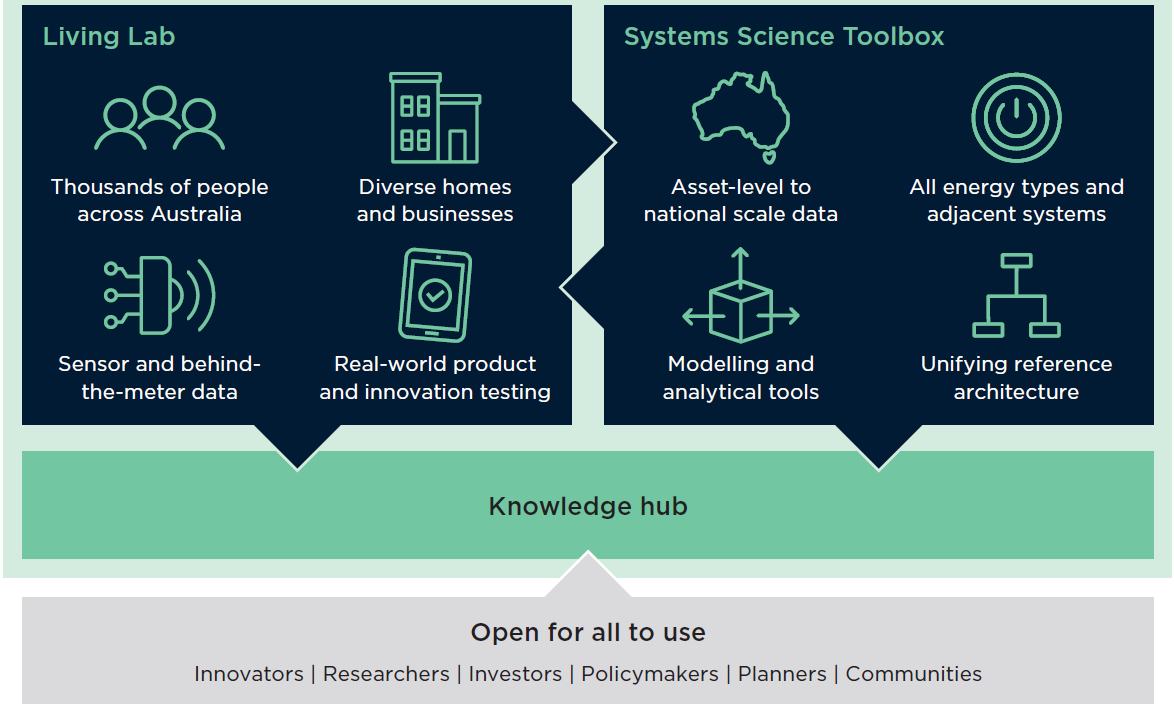The challenge
Australia's energy system is undergoing rapid changes with the introduction of large-scale renewables and storage, coal-fired power stations closing, growing penetrations of rooftop solar, electric vehicles (EVs) and household and community batteries, the development of a hydrogen industry, and more.
Australians are much more involved with the energy system, as household solar, batteries and EVs enable us to be potential suppliers as well as consumers. At the same time, industries are developing novel pathways to decarbonisation. As such, energy users – both big and small – will play an active role in how the system operates. It's a whole new way of thinking about energy – more interconnected and dynamic than ever before.
We currently lack the tools we need to find the smoothest, most sustainable and most equitable path to transition. NEAC will provide a modern toolbox that can help planners, governments, industry and users coordinate and guide this transformation in a holistic way.

The solution
NEAC will integrate technical and social aspects of the energy transition to provide fast, accurate data at any scale. It will feature:
- A Living Lab of thousands of diverse people and appliances in real homes and businesses across Australia, pre-recruited and ready for research.
- A Systems Science Toolbox with rich, curated datasets, structured in a coherent multi-energy systems science framework; and powerful analytical tools.
Our Living Lab will give researchers easy access to a pre-recruited pool of Australian households and businesses, to test energy-related hypotheses at scale, fast. The lab includes diverse participants across Australia including hard-to-reach demographics, streamlined recruitment, and built-in research infrastructure. From researchers needing faster, more diverse recruitment, to innovators seeking large-scale real-world data for investors, to policy makers testing potential interventions, the NEAC Living Lab makes it easy.
Our Systems Science Toolbox will provide curated, clean datasets and transparent models, streamlining your path to analysis. It will enable you to model the whole energy system flexibly across spatial scales, including electricity, gas, liquid fuels and heat, and adjacent systems such as water and transport. With seamless integration into existing workflows to reduce setup time, you will be able to focus on what really matters: delivering high-impact insights to drive real change.

Learn more
Read the latest news in our newsletter, and subscribe to stay updated.
The challenge
Australia's energy system is undergoing rapid changes with the introduction of large-scale renewables and storage, coal-fired power stations closing, growing penetrations of rooftop solar, electric vehicles (EVs) and household and community batteries, the development of a hydrogen industry, and more.
Australians are much more involved with the energy system, as household solar, batteries and EVs enable us to be potential suppliers as well as consumers. At the same time, industries are developing novel pathways to decarbonisation. As such, energy users – both big and small – will play an active role in how the system operates. It's a whole new way of thinking about energy – more interconnected and dynamic than ever before.
We currently lack the tools we need to find the smoothest, most sustainable and most equitable path to transition. NEAC will provide a modern toolbox that can help planners, governments, industry and users coordinate and guide this transformation in a holistic way.
The solution
NEAC will integrate technical and social aspects of the energy transition to provide fast, accurate data at any scale. It will feature:
- A Living Lab of thousands of diverse people and appliances in real homes and businesses across Australia, pre-recruited and ready for research.
- A Systems Science Toolbox with rich, curated datasets, structured in a coherent multi-energy systems science framework; and powerful analytical tools.
Our Living Lab will give researchers easy access to a pre-recruited pool of Australian households and businesses, to test energy-related hypotheses at scale, fast. The lab includes diverse participants across Australia including hard-to-reach demographics, streamlined recruitment, and built-in research infrastructure. From researchers needing faster, more diverse recruitment, to innovators seeking large-scale real-world data for investors, to policy makers testing potential interventions, the NEAC Living Lab makes it easy.
Our Systems Science Toolbox will provide curated, clean datasets and transparent models, streamlining your path to analysis. It will enable you to model the whole energy system flexibly across spatial scales, including electricity, gas, liquid fuels and heat, and adjacent systems such as water and transport. With seamless integration into existing workflows to reduce setup time, you will be able to focus on what really matters: delivering high-impact insights to drive real change.
Box showing Living Lab with four icons: Box showing Systems Science Toolbox with four icons: Underneath those two boxes are the words: Knowledge Hub Underneath Knowledge Hub: Open for all to use - innovators, researchers, investors, policymakers, planners, communities
Learn more
Read the latest news in our newsletter, and subscribe to stay updated.
